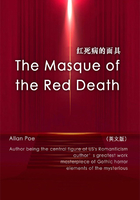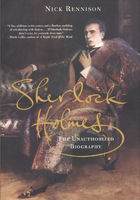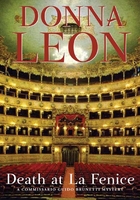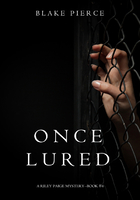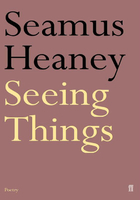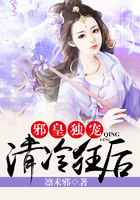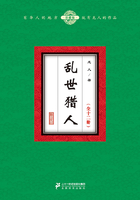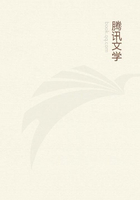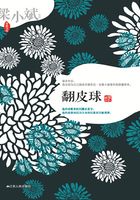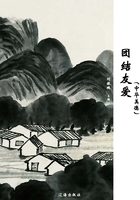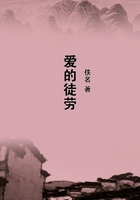Four weeks had passed since Pierre had been taken prisoner and though the French had offered to move him from the men's to the officers' shed, he had stayed in the shed where he was first put.
In burned and devastated Moscow Pierre experienced almost the extreme limits of privation a man can endure; but thanks to his physical strength and health, of which he had till then been unconscious, and thanks especially to the fact that the privations came so gradually that it was impossible to say when they began, he endured his position not only lightly but joyfully. And just at this time he obtained the tranquillity and ease of mind he had formerly striven in vain to reach. He had long sought in different ways that tranquillity of mind, that inner harmony which had so impressed him in the soldiers at the battle of Borodino. He had sought it in philanthropy, in Freemasonry, in the dissipations of town life, in wine, in heroic feats of self-sacrifice, and in romantic love for Natasha; he had sought it by reasoning- and all these quests and experiments had failed him. And now without thinking about it he had found that peace and inner harmony only through the horror of death, through privation, and through what he recognized in Karataev.
Those dreadful moments he had lived through at the executions had as it were forever washed away from his imagination and memory the agitating thoughts and feelings that had formerly seemed so important. It did not now occur to him to think of Russia, or the war, or politics, or Napoleon. It was plain to him that all these things were no business of his, and that he was not called on to judge concerning them and therefore could not do so. "Russia and summer weather are not bound together," he thought, repeating words of Karataev's which he found strangely consoling. His intention of killing Napoleon and his calculations of the cabalistic number of the beast of the Apocalypse now seemed to him meaningless and even ridiculous. His anger with his wife and anxiety that his name should not be smirched now seemed not merely trivial but even amusing. What concern was it of his that somewhere or other that woman was leading the life she preferred? What did it matter to anybody, and especially to him, whether or not they found out that their prisoner's name was Count Bezukhov?
He now often remembered his conversation with Prince Andrew and quite agreed with him, though he understood Prince Andrew's thoughts somewhat differently. Prince Andrew had thought and said that happiness could only be negative, but had said it with a shade of bitterness and irony as though he was really saying that all desire for positive happiness is implanted in us merely to torment us and never be satisfied. But Pierre believed it without any mental reservation. The absence of suffering, the satisfaction of one's needs and consequent freedom in the choice of one's occupation, that is, of one's way of life, now seemed to Pierre to be indubitably man's highest happiness. Here and now for the first time he fully appreciated the enjoyment of eating when he wanted to eat, drinking when he wanted to drink, sleeping when he wanted to sleep, of warmth when he was cold, of talking to a fellow man when he wished to talk and to hear a human voice. The satisfaction of one's needs- good food, cleanliness, and freedom- now that he was deprived of all this, seemed to Pierre to constitute perfect happiness; and the choice of occupation, that is, of his way of life- now that that was so restricted- seemed to him such an easy matter that he forgot that a superfluity of the comforts of life destroys all joy in satisfying one's needs, while great freedom in the choice of occupation- such freedom as his wealth, his education, and his social position had given him in his own life- is just what makes the choice of occupation insolubly difficult and destroys the desire and possibility of having an occupation.
All Pierre's daydreams now turned on the time when he would be free. Yet subsequently, and for the rest of his life, he thought and spoke with enthusiasm of that month of captivity, of those irrecoverable, strong, joyful sensations, and chiefly of the complete peace of mind and inner freedom which he experienced only during those weeks.
When on the first day he got up early, went out of the shed at dawn, and saw the cupolas and crosses of the New Convent of the Virgin still dark at first, the hoarfrost on the dusty grass, the Sparrow Hills, and the wooded banks above the winding river vanishing in the purple distance, when he felt the contact of the fresh air and heard the noise of the crows flying from Moscow across the field, and when afterwards light gleamed from the east and the sun's rim appeared solemnly from behind a cloud, and the cupolas and crosses, the hoarfrost, the distance and the river, all began to sparkle in the glad light- Pierre felt a new joy and strength in life such as he had never before known. And this not only stayed with him during the whole of his imprisonment, but even grew in strength as the hardships of his position increased.
That feeling of alertness and of readiness for anything was still further strengthened in him by the high opinion his fellow prisoners formed of him soon after his arrival at the shed. With his knowledge of languages, the respect shown him by the French, his simplicity, his readiness to give anything asked of him (he received the allowance of three rubles a week made to officers); with his strength, which he showed to the soldiers by pressing nails into the walls of the hut; his gentleness to his companions, and his capacity for sitting still and thinking without doing anything (which seemed to them incomprehensible), he appeared to them a rather mysterious and superior being. The very qualities that had been a hindrance, if not actually harmful, to him in the world he had lived in- his strength, his disdain for the comforts of life, his absent-mindedness and simplicity- here among these people gave him almost the status of a hero. And Pierre felt that their opinion placed responsibilities upon him.

